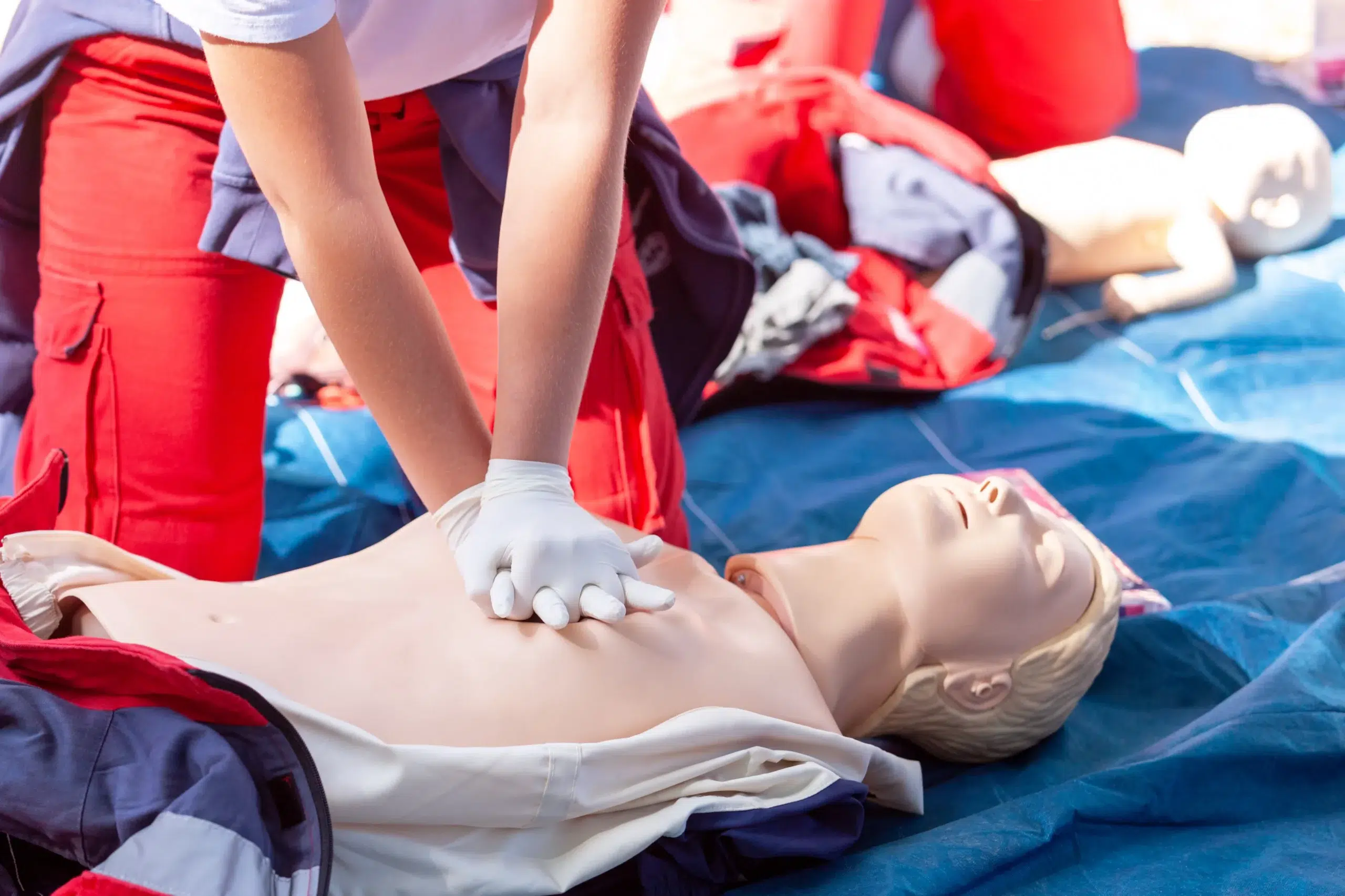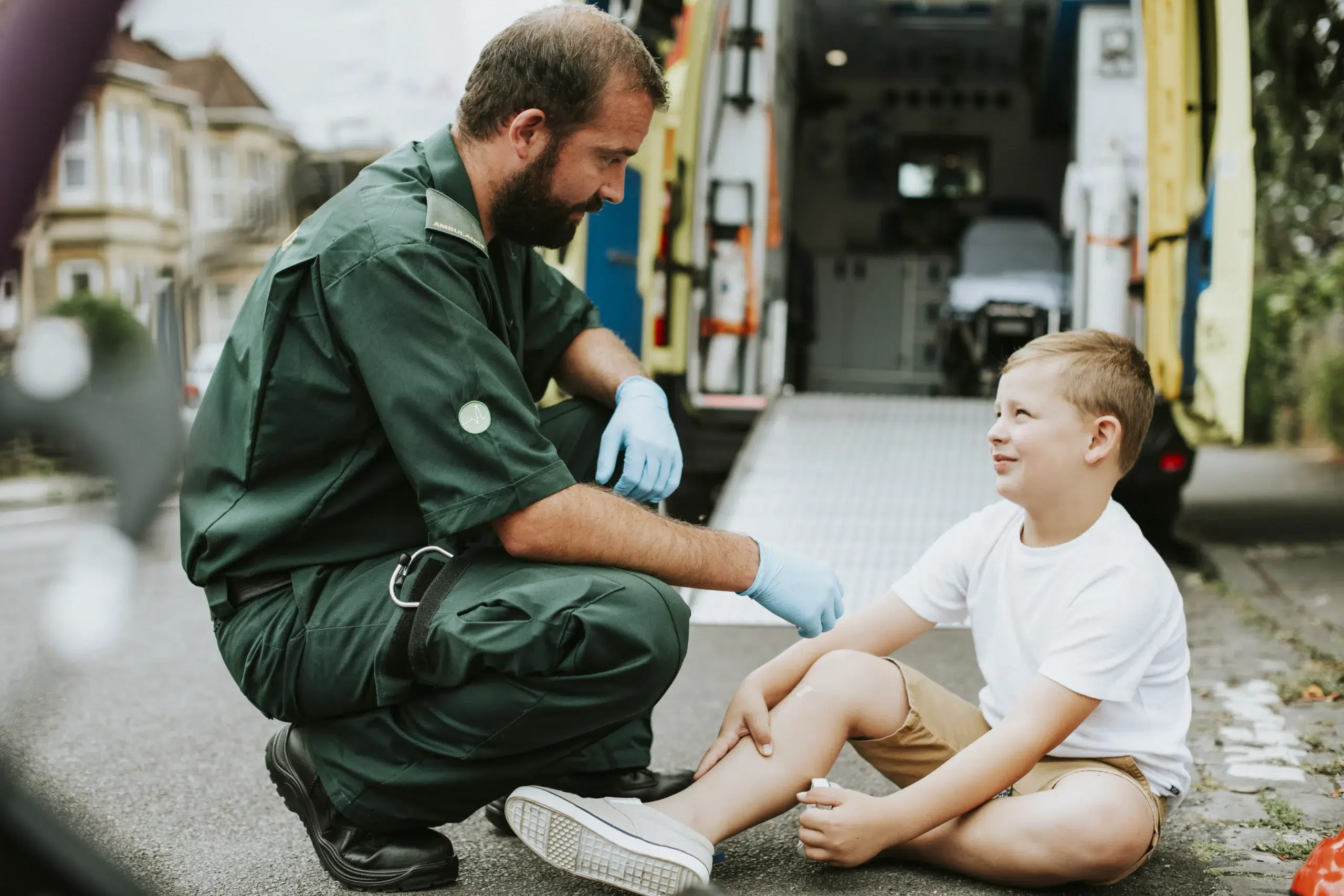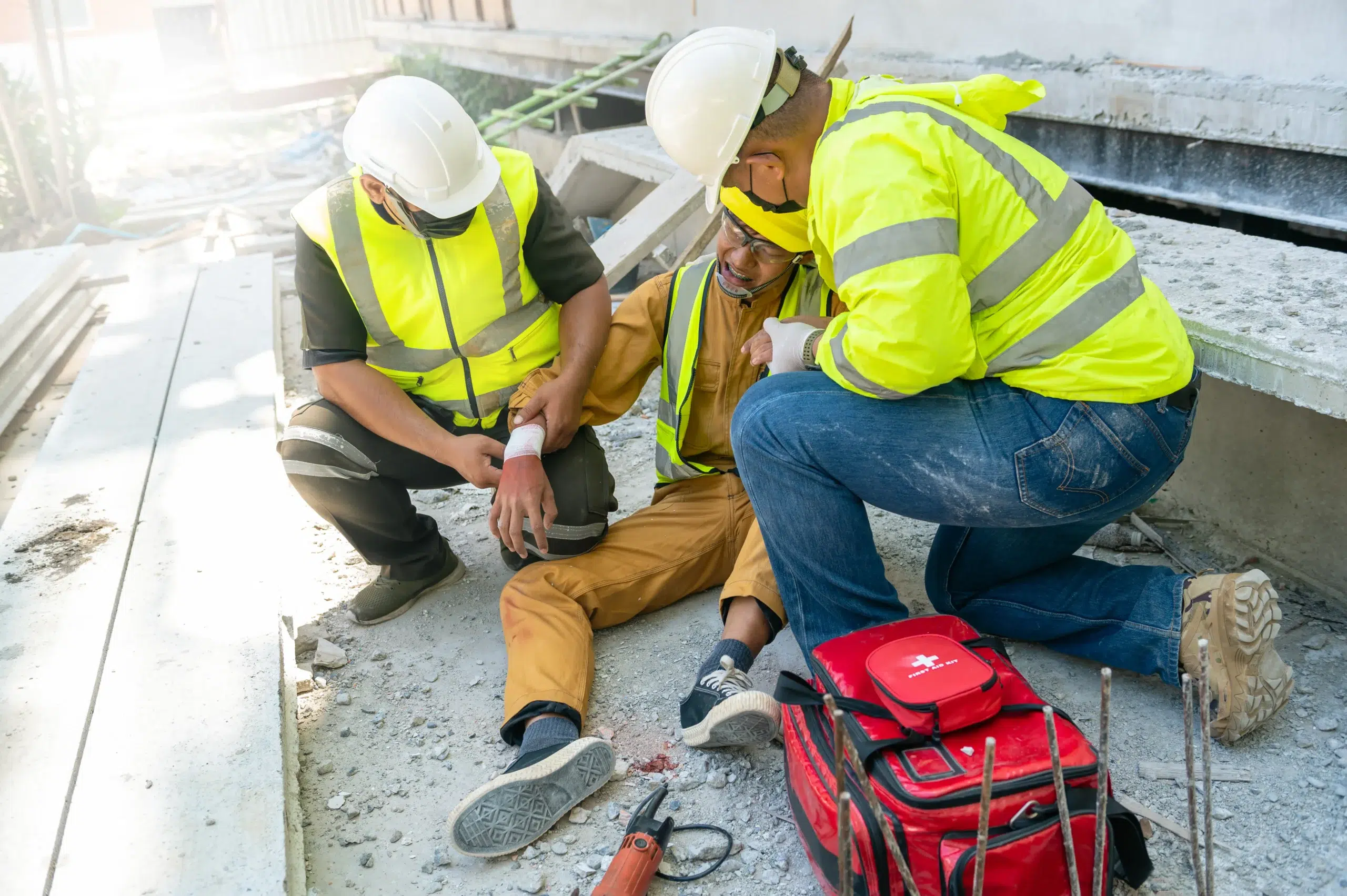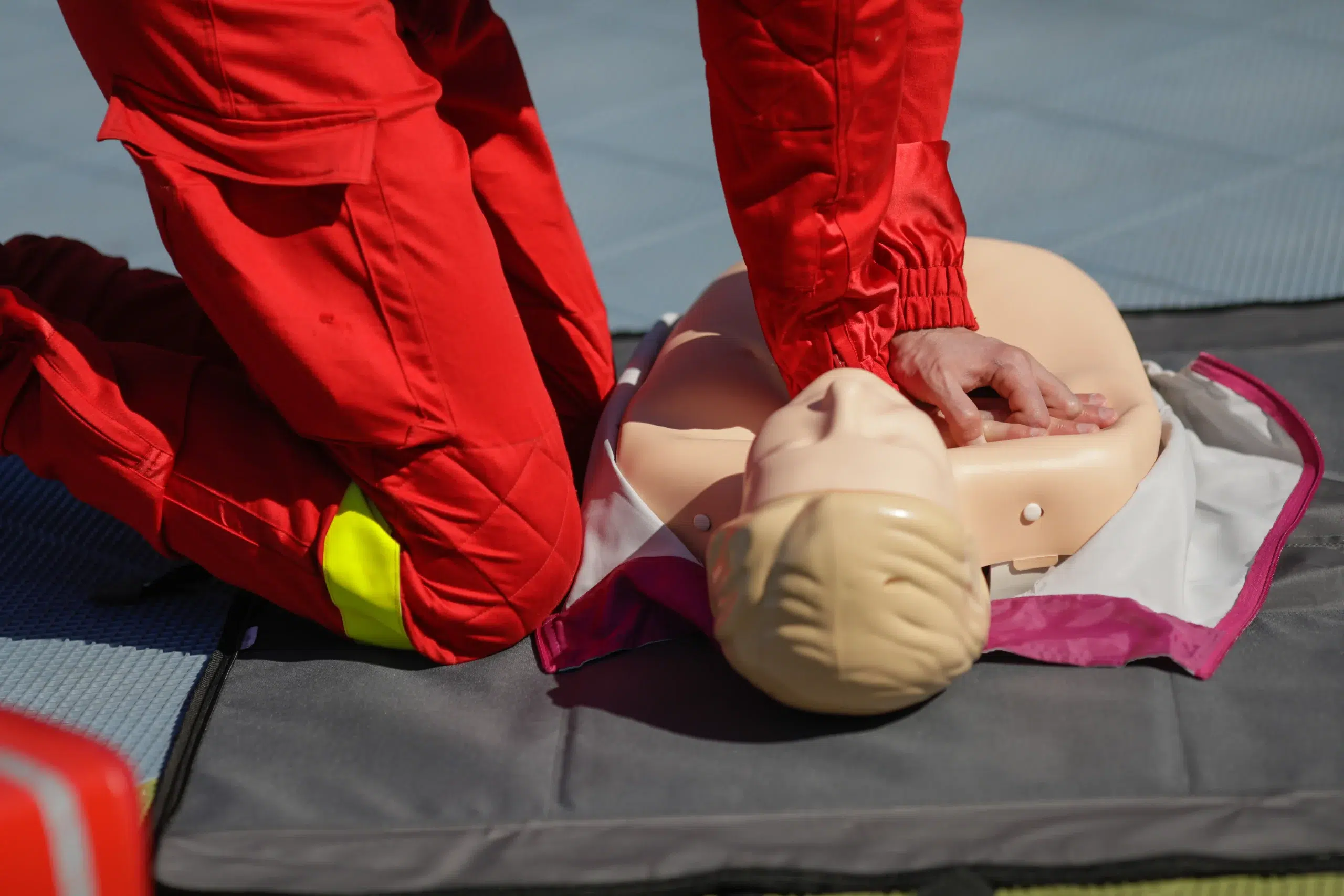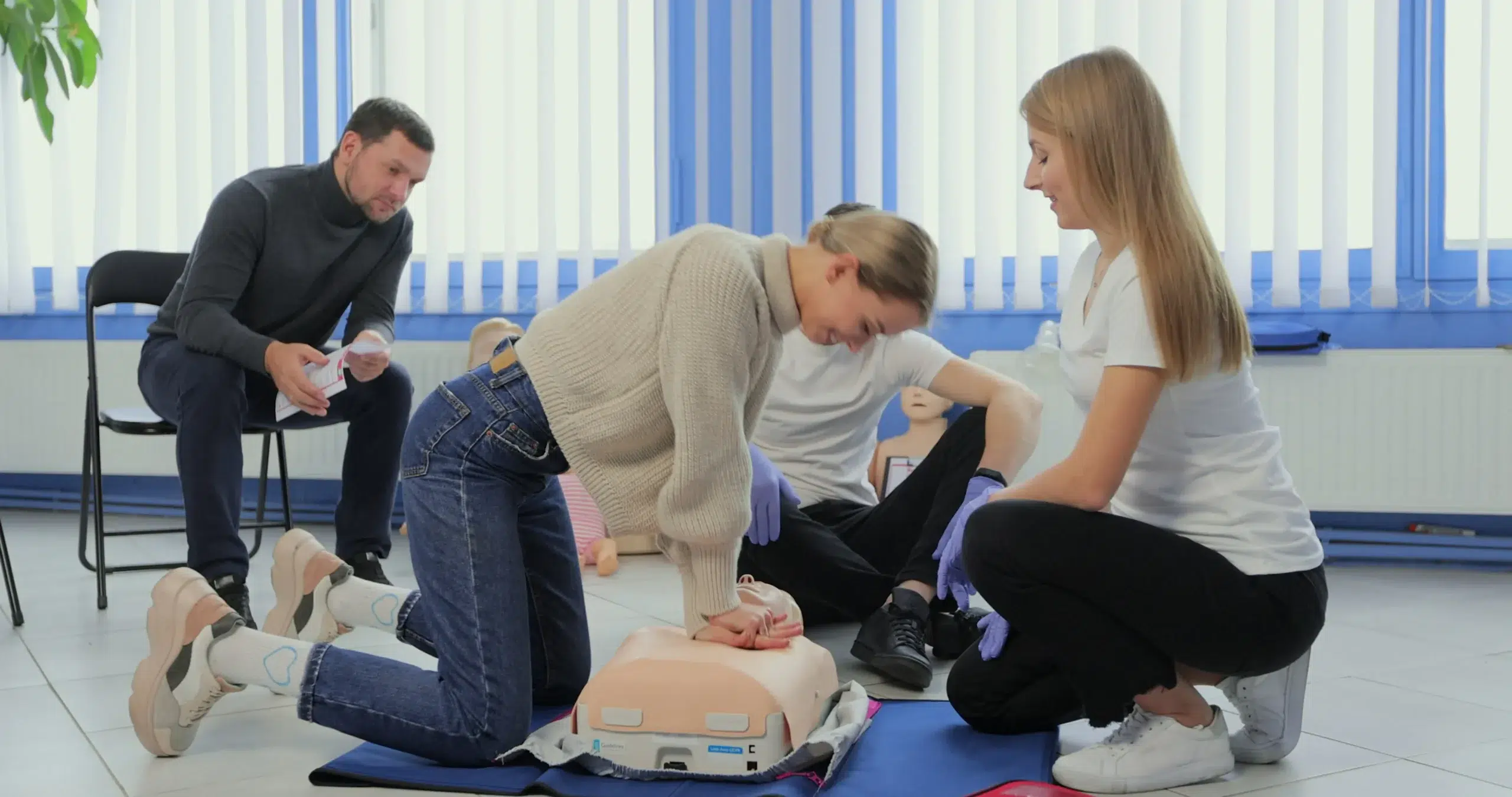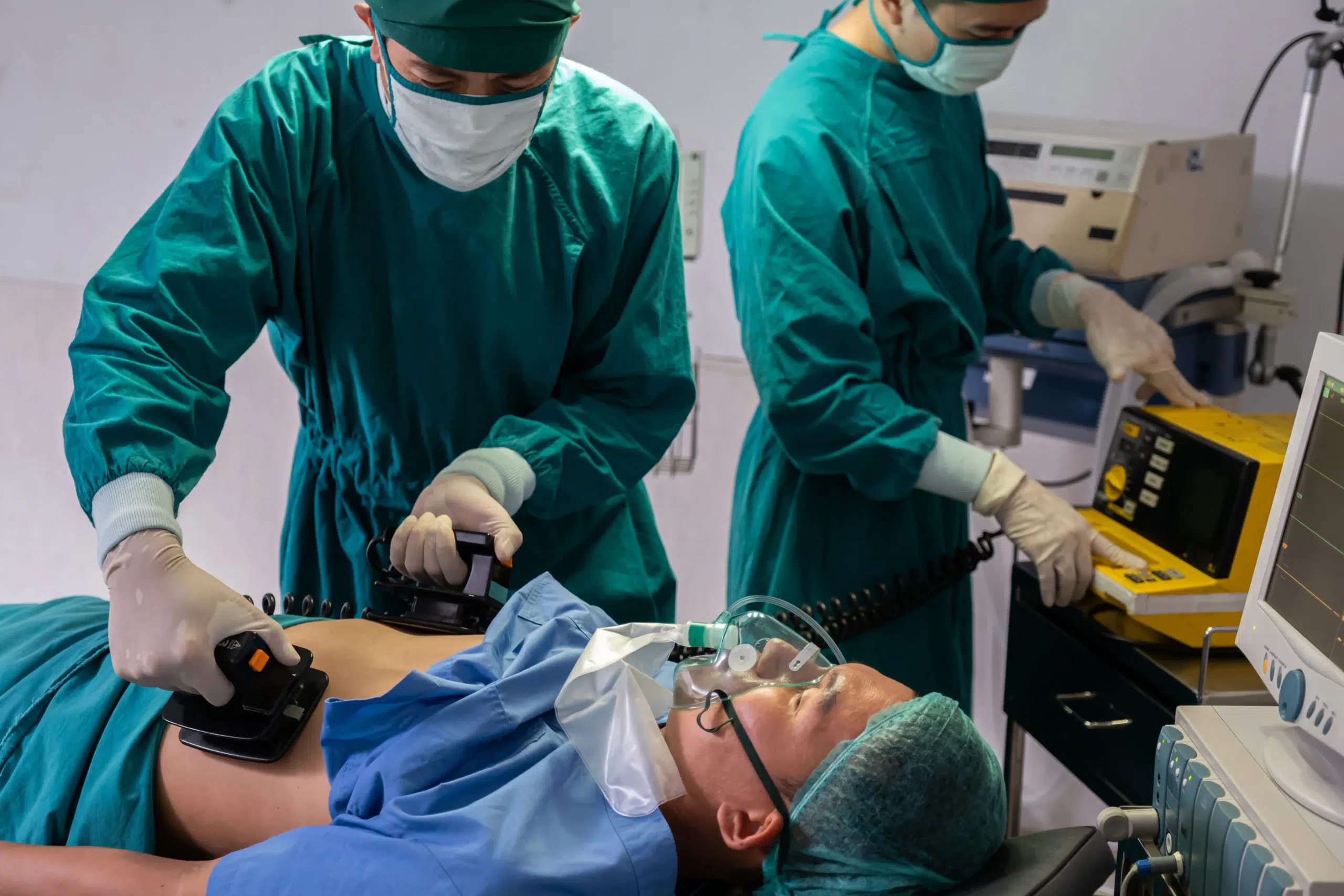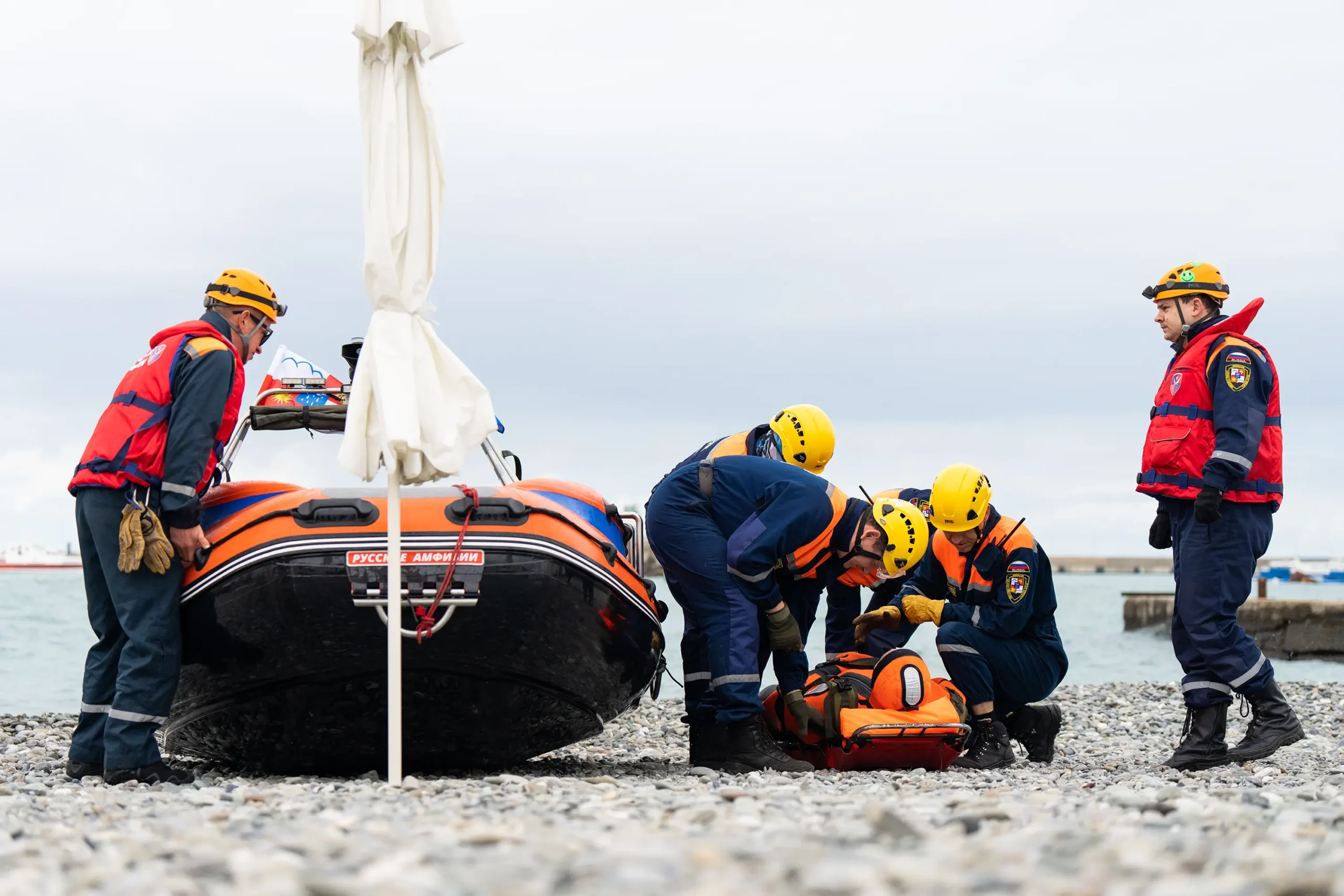In times of crisis, knowing CPR can be the difference between life and death. If you’re in Daly City and looking to become CPR certified, this guide is for you. We’ll explore the various CPR certification courses available, discuss the value and benefits of getting certified, and provide a step-by-step guide to the certification process. We’ll also highlight reputable CPR training providers in Daly City and answer frequently asked questions to help you make informed decisions. This guide aims to equip you with all the information you need to find the perfect CPR certification in Daly City for your personal or professional goals.
Key Takeaways
- CPR Certification Empowers You: Equipping yourself with life-saving skills through CPR certification provides confidence and preparedness, whether for personal or professional reasons. Explore the options in Daly City and find the right course for you.
- Find the Perfect Fit: Consider your schedule, career aspirations, and preferred learning style when selecting a CPR course. Daly City offers a variety of options, from basic to advanced certifications, ensuring you find the perfect fit.
- Get Ready to Save a Life: Understanding the CPR certification process, from course structure to renewal, prepares you for a smooth and successful learning experience. Take the first step towards becoming a valuable resource in your community.
What is CPR Certification in Daly City?
CPR certification equips you with the life-saving skills to respond to medical emergencies. It shows you’ve completed a course and demonstrated proficiency in cardiopulmonary resuscitation (CPR), often including other essential techniques like using an Automated External Defibrillator (AED). Several organizations in Daly City offer CPR certification courses designed for everyone from healthcare professionals to everyday people. These courses typically cover essential skills such as chest compressions, rescue breaths, and how to recognize the signs of a cardiac arrest. With a CPR certification, you’re prepared to provide immediate assistance, potentially saving a life. Many training providers in Daly City offer American Heart Association (AHA) certified courses, which are widely recognized and respected. Whether you’re a medical professional, a childcare provider, or just someone who wants to be prepared, CPR certification gives you the knowledge and confidence to act in emergencies. Daly City offers various courses, from Basic Life Support (BLS) for the general public to more advanced certifications like ACLS (Advanced Cardiovascular Life Support) and PALS (Pediatric Advanced Life Support), so you can choose the training that best fits your personal or professional goals.
CPR Certification Courses Available
Choosing the right CPR certification course depends on your specific needs and career goals. Here’s a breakdown of common certifications offered by Millbrae CPR Classes:
Basic Life Support (BLS)
BLS certification covers core life-saving skills for healthcare providers and other professionals. It emphasizes high-quality CPR for adults, children, and infants, along with techniques for the relief of choking and use of an AED. This course is essential for anyone working in healthcare, but it’s also a valuable skill for anyone to have. BLS certification provides the confidence and competence to respond effectively during emergencies. Millbrae CPR Classes offers BLS training that follows the latest American Heart Association guidelines.
Advanced Cardiovascular Life Support (ACLS)
ACLS certification goes beyond the basics, focusing on advanced techniques for managing cardiovascular emergencies and other life-threatening situations. It’s designed for healthcare professionals who are part of resuscitation teams in hospitals and other critical care settings. The course covers topics like airway management, pharmacology, and effective team dynamics during resuscitation. Millbrae CPR Classes provides ACLS courses taught by experienced instructors.
Pediatric Advanced Life Support (PALS)
Specifically designed for healthcare providers who treat infants and children, the PALS certification course teaches advanced life-saving skills for pediatric emergencies. It covers everything from respiratory distress and shock to cardiac arrest and post-resuscitation care. PALS certification is crucial for pediatricians, nurses, paramedics, and other healthcare professionals working with young patients. The PALS courses at Millbrae CPR Classes use realistic scenarios and simulations to enhance learning.
First Aid Certification
While not strictly CPR, First Aid certification is a valuable complement to any CPR training. It equips you with the skills to handle a wide range of medical emergencies, from minor cuts and burns to more serious injuries like fractures and allergic reactions. Learning basic first aid can help you provide immediate care until professional medical help arrives. Millbrae CPR Classes offers First Aid training that meets current industry standards.
Top CPR Certification Providers in Daly City
Finding the right CPR certification provider is crucial for a positive and effective learning experience. Here are a few reputable options in Daly City and the surrounding area:
Millbrae CPR Classes
Millbrae CPR Classes offers a wide range of American Heart Association (AHA) courses, including BLS (Basic Life Support), ACLS (Advanced Cardiovascular Life Support), PALS (Pediatric Advanced Life Support), and NRP (Neonatal Resuscitation Program). These courses cater to various needs, from healthcare providers seeking advanced certifications to individuals looking for basic CPR and first aid training. They also offer specialized training like the EMSA Child Care Health & Safety program and discount group classes. As a woman-owned AHA Training Center, they pride themselves on excellent customer service and offer classes daily in over 60 cities, conveniently serving San Mateo, Daly City, and Millbrae, CA. For healthcare professionals, they also provide the RQI program. They even have a low price guarantee.
Positive Heart CPR
Located in Daly City, Positive Heart CPR has earned positive reviews for its engaging and supportive learning environment. Students frequently praise the instructor, Joan, for her clear communication and ability to adapt to different learning styles. With a focus on creating a comfortable atmosphere, Positive Heart CPR helps students gain confidence in their life-saving skills.
Safety Training Seminars
Safety Training Seminars provides a comprehensive selection of AHA courses, including BLS, ACLS, PALS, and CPR. Their flexible schedule, with classes offered seven days a week, makes it easier for busy professionals and individuals to find a time that works for them. Learn more about their course offerings.
Rescue With CPR
Specializing in AHA-certified CPR training, Rescue With CPR offers various life-saving courses in Daly City. They are known for their certified instructors in BLS and ACLS, ensuring participants receive high-quality training that meets industry standards. Their focus on practical skills and real-world scenarios prepares students to respond effectively in emergencies.
Cost & Value of CPR Certification
Knowing the cost of CPR certification helps you budget and find the best value. This section breaks down typical expenses, additional costs, and ways to save.
Course Pricing
In Daly City, a Basic Life Support (BLS) CPR certification course usually costs around $75. This covers the essential training and skills you need to respond to emergencies. Other certifications, like ACLS and PALS, will likely have a higher price tag because of the advanced training involved.
Additional Costs
While the BLS course itself is around $75, remember to factor in the cost of the required textbook, typically about $20. You can often purchase this online, sometimes directly through the training provider. Some providers may include the textbook in the course fee, so it’s always best to confirm what’s included. Also, be aware of potential small fees for certification card processing or replacement, should you ever need a new one.
Group Discounts & Special Offers
If you’re getting certified with a group, look for group discounts. Many CPR training centers offer reduced rates for groups, making it more economical for workplaces, community organizations, or even groups of friends to train together. Keep an eye out for special offers or promotions too. These can include discounts for early registration, referrals, or combining multiple certifications. Comparing prices and checking for deals ensures you get the best value for your CPR training. Contacting providers directly to ask about potential discounts or package deals is always a good idea.
The CPR Certification Process
Getting your CPR certification is straightforward and accessible. This section breaks down the process, from course structure to renewal.
Course Duration & Format
CPR certification courses in Daly City offer flexible scheduling options, with classes available daily, from 8 am to 10 pm, seven days a week. This makes it easy to find a class time that fits your busy schedule. After completing the course, you’ll receive an American Heart Association (AHA) certification card, valid for two years, demonstrating your CPR proficiency. You can learn more about our CPR and First Aid certification courses on our website.
Skills Assessment & Testing
Many CPR courses use a blended learning model, combining online coursework with in-person skills sessions. This allows you to study the theoretical material at your own pace. However, an in-person skills assessment with a certified instructor is required to receive your certification. This hands-on component ensures you can perform CPR effectively. Learn more about getting CPR certified and what to expect.
Certification Validity & Renewal
You’ll typically receive your CPR certification card the same day you complete all course requirements. CPR certifications are valid for two years. To renew, check the expiration date on your card and enroll in a refresher course before it expires. Renewal typically involves attending the training, completing any necessary written or skills assessments, and receiving an updated certification card.
Choose the Right CPR Certification Course
Finding the right CPR certification course takes a little consideration. It’s a bit like finding the right pair of shoes—you want something that fits your needs and feels comfortable. This section will guide you through the process.
Factors to Consider
When looking for CPR certification classes, practical factors like location and schedule are important. Think about how far you’re willing to travel and whether weekday evenings, weekends, or daytime classes fit your schedule best. Cost is another key factor, so compare pricing. Look for reviews and testimonials to understand a training provider’s reputation and teaching quality. A reputable provider like Millbrae CPR Classes offers a low-price guarantee.
Match Courses to Career Requirements
Some professions, such as childcare providers and emergency responders, require CPR certification. Many others don’t, but having this skill on your resume can give you an advantage. Employers often view CPR certification as a valuable asset. Consider your current and future career goals when selecting a course. For example, healthcare professionals often pursue ACLS or PALS certification to develop their skills.
Instructor Qualifications & Teaching Style
The quality of your training significantly depends on the instructor. Look for certified instructors affiliated with reputable organizations like the AHA. AHA-certified courses follow the latest research and guidelines. A good instructor creates a supportive learning environment. Millbrae CPR Classes is known for its experienced, certified instructors. They understand that learning CPR can feel intimidating and strive to make the experience positive. Choosing a course with qualified instructors will give you the confidence to perform CPR effectively.
Online vs. In-Person CPR Certification
Deciding between online and in-person CPR training often comes down to your schedule and learning style. Both formats have advantages, and understanding these will help you choose the best option.
Pros & Cons of Each Format
Online CPR courses offer flexibility. You can learn at your own pace and revisit material as needed, which is helpful for busy schedules or if you prefer self-directed learning. However, most online CPR courses require an in-person skills assessment before receiving CPR certification. This blended learning approach ensures you have the hands-on practice necessary to perform CPR confidently. In-person classes provide immediate feedback from an instructor and the opportunity to practice with other students. This is especially helpful for those who learn best in an interactive environment. However, in-person classes require attending a scheduled session.
Blended Learning
Many CPR certification courses now use blended learning, combining online learning with in-person skills practice. You complete the cognitive portion online, then attend a shorter in-person session to demonstrate your skills and receive certification. Blended learning offers a practical solution for those seeking a balance between flexibility and hands-on training. This combined approach caters to various learning styles and schedules.
Online Certification Acceptance in California
If you’re in California and considering an online CPR course, online certifications are accepted if they meet the standards of recognized organizations like the American Heart Association. Choose a reputable provider that offers blended learning, including an in-person skills assessment, to ensure your certification meets California requirements. This is crucial for professions like healthcare and childcare, where valid CPR certification is often mandatory. Understanding online certification acceptance can simplify the process for those seeking CPR certification for personal knowledge or specific job requirements.
Prepare for Your CPR Certification Course
Getting ready for your CPR certification course can boost your confidence and set you up for success. Knowing what to expect, having a few helpful tips, and understanding the materials situation can make a big difference in your learning experience.
What to Expect During Training
CPR certification courses blend classroom learning with hands-on practice. Expect a mix of lectures, demonstrations, and interactive sessions where you’ll practice CPR techniques on mannequins. Millbrae CPR Classes offers high-quality, affordable CPR training designed to give you the skills and confidence to respond effectively in medical emergencies. These courses emphasize hands-on practice to build your confidence for real-life scenarios.
Tips for Success
A little preparation goes a long way. Before class, review any materials provided by your training center. This will give you a head start and allow you to focus on the practical skills during training. CPR certification empowers you to make a difference. Whether you’re a healthcare professional or want to learn life-saving skills, explore the CPR classes available to suit your needs. Many CPR training providers offer classes seven days a week, making it easier to fit into your schedule.
Required Materials & Equipment
You typically won’t need to bring anything to your CPR class. The training center provides all the necessary equipment, including mannequins, AED trainers, and other materials. CPR class costs vary, but check with your provider for their pricing. Millbrae CPR Classes offers a low price guarantee, so you can feel good about the value. They also provide a range of American Heart Association courses, including BLS, ACLS, PALS, and CPR.
Benefits of CPR Certification in Daly City
Getting CPR certified offers several advantages, from strengthening your career prospects to equipping you to handle emergencies and contribute to a safer community. Let’s explore some key benefits:
Career Advancement
CPR certification can significantly enhance your resume and open doors to various career opportunities. Many employers see CPR certification as a valuable asset, demonstrating your preparedness and commitment to safety. Whether you’re pursuing a career in healthcare, education, childcare, or other fields, having this credential can give you a competitive edge. It shows potential employers you have practical skills to handle real-world emergencies, making you a more desirable candidate.
Emergency Preparedness
CPR certification empowers you to respond confidently during emergencies. Knowing CPR and basic first aid can be invaluable, especially for parents, caregivers, and those working with children. It provides the skills and knowledge to offer lifesaving assistance before professional medical help arrives. This preparedness brings peace of mind, knowing you can handle a crisis effectively. Daly City offers various CPR classes to suit your needs, whether you’re a healthcare professional or want to learn essential life-saving skills.
Community Impact & Safety
Learning CPR allows you to make a real difference in your community. By acquiring these skills, you become a valuable resource, capable of potentially saving lives in critical situations. CPR and first aid success stories highlight the profound impact of timely intervention. Becoming CPR certified means you’re prepared to step up when needed, contributing to a safer and more resilient community. You join a network of trained individuals ready to respond to emergencies.
CPR Certification FAQs
This section answers your most frequently asked CPR certification questions. We cover everything from basic CPR techniques to certification specifics, so you can feel confident and prepared for your training.
What does CPR certification entail?
CPR certification involves a structured course that teaches you the essential skills to perform cardiopulmonary resuscitation. You’ll learn how to recognize cardiac arrest, provide chest compressions, and deliver rescue breaths. The training also covers using an automated external defibrillator (AED) and other life-saving techniques. CPR and First Aid training often includes instruction on handling choking emergencies and other first aid procedures.
Is CPR certification mandatory for all jobs?
While CPR certification isn’t legally required for every profession, many employers highly value it. Having this certification can significantly improve your job prospects, especially in fields like healthcare, education, and childcare. Even if it’s not a formal job requirement, CPR training demonstrates your commitment to safety and preparedness. It can also be a valuable asset in your personal life, empowering you to respond effectively in emergencies.
Are there different types of CPR certifications?
Yes, there are various levels of CPR certification to meet different needs. These include Basic Life Support (BLS), Advanced Cardiovascular Life Support (ACLS), Pediatric Advanced Life Support (PALS), and more. The specific requirements for each certification vary based on the course and the provider, such as the American Heart Association or the Red Cross. Choosing the right course depends on your individual goals and professional requirements.
How long is a CPR certification valid?
CPR certifications are typically valid for two years. Renewal courses are available to keep your skills current and maintain your certification status. Check with your certifying organization or employer for specific renewal guidelines. Staying current with the latest CPR techniques and recommendations is essential for providing effective care in emergencies.
Can I get CPR certified online?
Yes, online CPR certification courses offer flexibility and convenience. However, choosing a reputable provider that meets the standards of organizations like the American Heart Association is important. Many online courses use blended learning, combining online instruction with in-person skills practice and evaluation. Check whether online certification is accepted in your specific location or profession. For some professions, in-person training may be required.
What if I have more questions?
If you have additional questions about CPR certification, don’t hesitate to contact us. We’re happy to provide further information and guidance. Our team can help you choose the right course and answer any specific questions you may have.
Related Articles
- Why CPR is Crucial in Healthcare
- CPR Classes in Daly City: Your Complete Guide – Millbrae CPR Classes
- BLS in Daly City: Your Guide to Courses & Certification – Millbrae CPR Classes
- CPR Renewal in San Mateo: A Complete Guide
- Online CPR Classes in Millbrae: A Complete Guide
CPR Certification FAQs
What does CPR certification involve?
CPR certification teaches you the skills to perform cardiopulmonary resuscitation and often how to use an automated external defibrillator (AED). You’ll learn to recognize cardiac arrest, give chest compressions, and provide rescue breaths. The training also covers choking relief and other first aid procedures. Different certification levels exist, such as BLS, ACLS, and PALS, each designed for specific needs and professional levels.
How do I choose the right CPR class?
Consider your career goals, schedule, and budget. Healthcare providers often need advanced certifications like ACLS or PALS. If you’re looking for basic CPR training for personal knowledge or a specific job, a BLS course might suffice. Check class schedules and locations for convenience. Compare costs and look for group discounts or special offers. Reading reviews and testimonials can help you find a reputable provider with qualified instructors.
What’s the difference between online and in-person CPR training?
Online courses offer flexibility, letting you learn at your own pace. However, most require an in-person skills assessment to receive certification. In-person classes provide immediate instructor feedback and opportunities to practice with others. Blended learning combines online coursework with in-person skills sessions, offering a balance between flexibility and hands-on training.
How much does CPR certification cost, and how long is it valid?
CPR certification costs vary depending on the course level and provider. BLS certification typically costs around $75, plus the cost of the textbook. Additional fees may apply for certification card processing or replacement. Group discounts and special offers can help you save. Most CPR certifications are valid for two years. You’ll need to take a refresher course to renew your certification before it expires.
What if I need CPR certification for a specific job or license?
Certain professions, like healthcare providers and childcare workers, require specific CPR certifications. Check with your employer or licensing board to determine the necessary certification level and any specific requirements. Some employers may prefer certifications from specific organizations like the American Heart Association. Ensure your chosen course aligns with these requirements to meet workplace or licensing standards.
